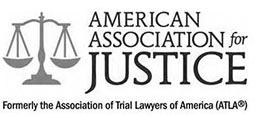Signs Of Repressed Childhood Trauma In Adults
The thought of having memories or emotions that have been completely repressed due to trauma can be a frightful thought. Perhaps you have repressed childhood trauma yourself. If you or someone you love is a survivor of childhood abuse, some emotions or memories may indeed have gone dormant. Read on to learn more about repressed childhood trauma in adults, and how you may be able to take legal action against your abuser.
How Do I Know If I Have Repressed Childhood Trauma?
First, let’s define repressed childhood trauma. This occurs when a person has experienced traumatic events in their childhood. These events are so traumatic that they impact the brain’s ability to form memories. Some experts explain that this is the brain’s attempt to cope with emotional or psychological trauma, and many classify it as a dissociative behavior in which a person separates themselves from their past to cope with the negative memory.
Self-diagnosing repressed childhood trauma can be difficult. Generally, people with repressed childhood trauma aren’t able to deal with everyday situations and often lash out at people, hide themselves away, or act in a childish manner when things don’t go their way. They also may be presenting some of the signs listed below. The best way to learn if you have repressed childhood trauma is to see a mental health professional.
Signs Of Repressed Childhood Trauma In Adults
What are the signs of repressed childhood trauma? According to the experts, these are some of the most common ways that repressed childhood trauma presents in adults:
- Acting like a child: Oftentimes, those who repress childhood trauma end up acting like a child more frequently than the average adult. This is because the person is regressing back into a childhood experience they may not have addressed. This could look like the person whining, crying, throwing tantrums, using a child-like voice, or being childishly stubborn when things don’t go their way.
- Attachment issues and an intense fear of abandonment: Missing a person is one thing, but constantly fearing abandonment can be a sign of repressed childhood trauma. Many times, adults with childhood trauma have experienced abandonment by a caregiver. This can cause them to feel an extreme attachment to other people and to get upset or emotional when these people leave them, even if it’s only for a day or two.
- Seemingly random reactions to certain people: If you have strong negative reactions towards specific people, this could be your body telling you that the person might harm you. This doesn’t mean that this person caused your childhood trauma, just that they may remind you of the person that did.
- Inability to cope with everyday stress: Life has constant curveballs that cause stress in our day-to-day life. For people with repressed childhood trauma, this stress can often feel unbearable. These individuals will often lash out, throw tantrums, or hide when normal stress affects them. This is because the person’s brain and body are trying to protect them and are regressing into the original state they were in during their trauma.
What Happens If Childhood Trauma Is Not Resolved?
Not addressing childhood trauma can result in repression, which causes severe negative effects that can last a lifetime. This can lead to a sense of constant fear, helplessness, and anxiety into adulthood, which only sets the person up for further trauma.
Schedule A Free Case Review
If you or someone you love has repressed childhood trauma due to past abuse, Massey Law Firm is prepared to assist you with getting the justice you deserve. We know that taking action is part of the healing process for many survivors of childhood trauma, which is why we dedicate our best staff to such cases. If you are interested in taking legal action against your abuser, give our office a call today at 602-955-0055, and we will review your case for free.
Tags: Child Abuse Lawsuit, Childhood Trauma, Repressed Trauma


